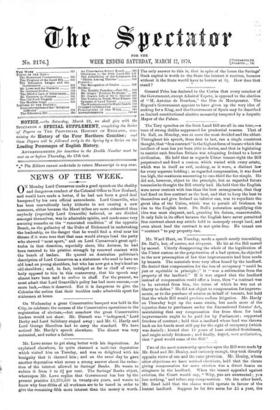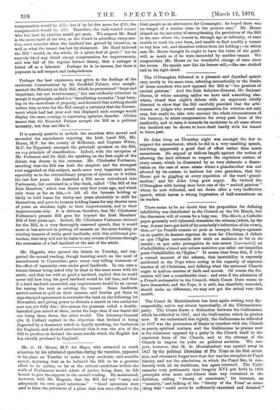Two of the most noteworthy speeches upon the Bill were
made by Mr. Read and Mr. Henley, and curiously enough, they took directly opposite views of one and the same provision. Mr. Henley, whose other objections we have noticed elsewhere, held that the clause giving compensation for mere eviction was a direct bonus on stinginess in the landlord. When the tenant appealed against eviction, the Court would say, " Why, you are overrented ; you lose nothing," and refuse any compensation. On the other hand, Mr. Read held that the clause would operate in favour of the lenient landlord. Suppose he let five acres for £5 a year, the compensation would be £35 ; but if he let five acres for £10, the compensation would be .£70. Therefore, the rack-rented tenant who lost least by eviction would get most. We suspect Mr. Read is the more right of the two, as the Court in awarding compensa- tion must consider what the landlord has gained by extortion, as well as what the tenant has lust by cheapness. Mr. Read believed the Bill " would, on the whole, do a great deal of good ;" but he scarcely liked any detail except compensation for improvements, and was full of the regular farmer theory, that a cottager is better off as a labourer. Perhaps he is in income, but there is payment in self-respect and independence.



































 Previous page
Previous page